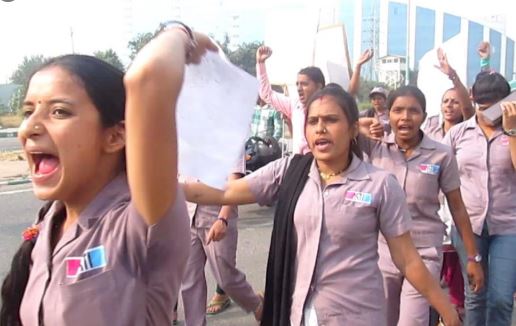Bharat Jhunjhunwala
Many state governments have decided to either dilute or freeze labour laws for three years. Such steps, though necessary, will alone not help revive the economy. The stated idea is to create a better environment for investment in these states. Businessmen invest only after considering a host of factors such as infrastructure, rule of law, enforcement of contracts, corruption, availability of loans, demand in the market, competition from imports, etc. Labour laws are just one of these many considerations. For this reason, mere dilution of labour laws may not result in economic growth. No wonder, the relaxation of labour laws in Canada led to a reduction in employment; while strict labour laws in Sweden are still leading to robust employment.
That said, business-friendly labour laws will certainly contribute to the revival of businesses. There is a “labour market” in the country — somewhat like the street corner “vegetable market.” The price of potato in the market depends upon the supply and demand at any given time. The price of potato is less if the supply is more. Similarly, the price of labour is less if the supply is high.
There is an unlimited supply of labour in this country because of the large population. Therefore, the market wages have to necessarily be low. Now, the government can artificially push up the wages but this will lead to a reduction in employment. Let us go back to the vegetable market. Large amounts of potatoes will remain unsold if the sellers make a cartel and decide that they will not sell potatoes below Rs 50 per kilo. The result will be that the consumer will use more tomatoes and less of potatoes. Some customers may buy cheaper potatoes from another market. Similarly, an artificial increase in the wages will lead businesses to use more machines and less labour; and some may migrate to another country like Bangladesh where wages are lower.
I know of a sugar factory that was making 2,000 bags of sugar every day and employing 2,000 workers about 50 years ago. Today, the same factory is making 8,000 bags of sugar every day but employing only 500 workers. A number of jobs that were previously done by labour are now being done by machines. Part of the reason is technological. The quality of sugar produced is consistent when made by machines. The other reason, however, is the businesses are wary of employing large numbers of workers and inviting workers’ agitation. The industrialist has deliberately followed a policy of adopting automation so as to reduce employment.
Thus, the Federation of Indian Chambers of Commerce and Industry has correctly stated in a note on Labour Reforms that many businessmen are shifting their factories abroad or using labour-displacing machines because of the tough labour laws. As a result, we have established a “labour aristocracy” of fewer workers engaging in hard tactics like “gherao.” Kanpur was once touted as “the Manchester of the East.” Its industries have turned into ghost compounds today. The textile mills of Mumbai have all gone — thanks to the agitations led by Datta Samant and muscle-flexing by the Shiv Sena — to Gujarat. Therefore, the government is moving in the right direction by trying to reform the labour laws so that the businesspersons do not replace labour with machines; and they do not go to other states or countries.
There, however, are two dimensions of labour laws. Certain laws push up the wages while others cause a decline in the productivity. The former must go because of substitution by machines. The latter are as important. It is necessary to increase the productivity of our workers if labour has to win the war against the machine. Say, a sugar mill owner has to decide whether to stitch the bags manually or by a machine. It may be profitable for him to have them stitched manually if a worker stitches 20 bags in an hour, while it may be profitable to use a machine if a worker stitches only 10 bags in an hour. Therefore, we will have to increase the productivity of our workers if we have to encourage businesses to use more labour.
The Industrial Disputes Act needs to be revisited from this angle. This act makes it difficult for an industrialist to remove an inefficient worker. One industrialist told me that his workers would hold the stitching machine in their hands and take rest or lazy away time. If they are asked to start stitching, they would retort, “You please dismiss me, I will still get 50 per cent salary while sitting at home and then also get reinstated by the labour court.” No wonder, according to a report by the State Bank of India, one worker produces goods worth $6,414 in India against $16,698 in China. Indeed, a part of the high productivity in China is due to large- scale production and use of better technologies. But, the strict labour laws there are also contributing substantially to such a difference.
As was stated above, the wages cannot increase in India due to the huge supply of workers. However, we can increase productivity and encourage businessmen to employ larger numbers of workers even if at low wages by reforming laws like the Industrial Disputes Act.
Other labour laws such as the Factories Act or the Workmen’s Compensation Act have no bearing on labour productivity. Dilution of these laws will lead to the deterioration of the work conditions without an increase in employment. This should be avoided.
The government must simultaneously implement other economic policies to generate employment. Specified companies are required to have an “Energy Audit” done. They have to examine and inform their shareholders whether they are using energy efficiently. A similar “Employment Audit” need be done to examine whether a company may be using machines for works that could be done by labour.
Two, high-level of taxes can be imposed on specific labour-displacing machines; or their use can be prohibited. For example, the use of JCB or excavators can be prohibited. That would lead to the businessmen getting the road construction done by labour. The additional cost must be borne by the country as an “employment tax.”
Three, government contracts such as those given by Rail Vikas Nigam Ltd and the National Highways Authority of India can have stipulation to use labour instead of machines. Four, the government can classify industries in “capital-intensive” like steel and aluminum, and “labour-intensive” like seed production, and impose higher level of GST on the former and lower level of GST on the latter — while keeping the average rate of GST unchanged. This will lead to more growth in our labour-intensive industries and create jobs.
The across-the board labour reforms being tried by the state governments would need a relook. We need only reform laws that can help increase productivity of our workers and generate employment.
The writer is a former Professor of Economics at IIM, Bangalore.






































